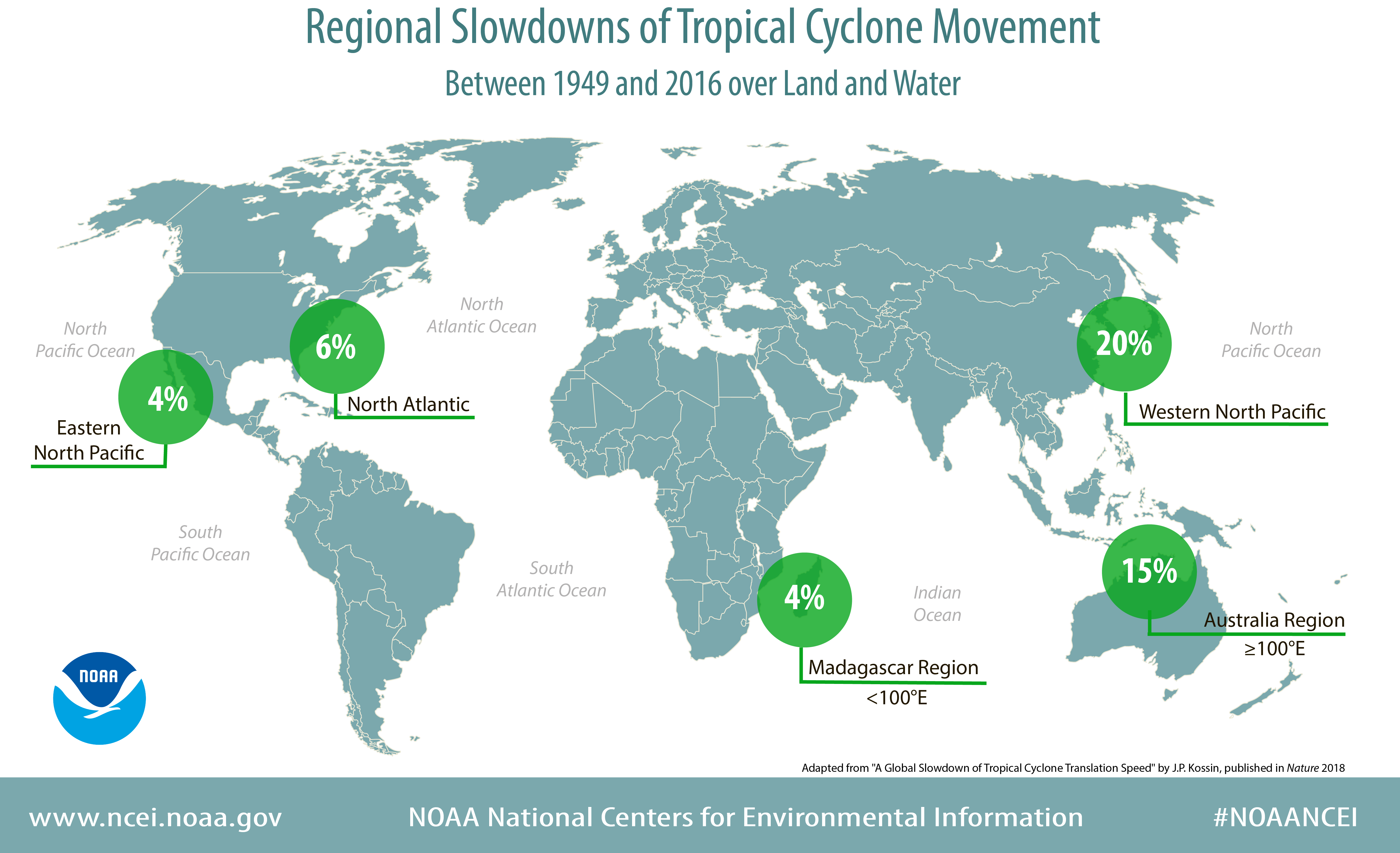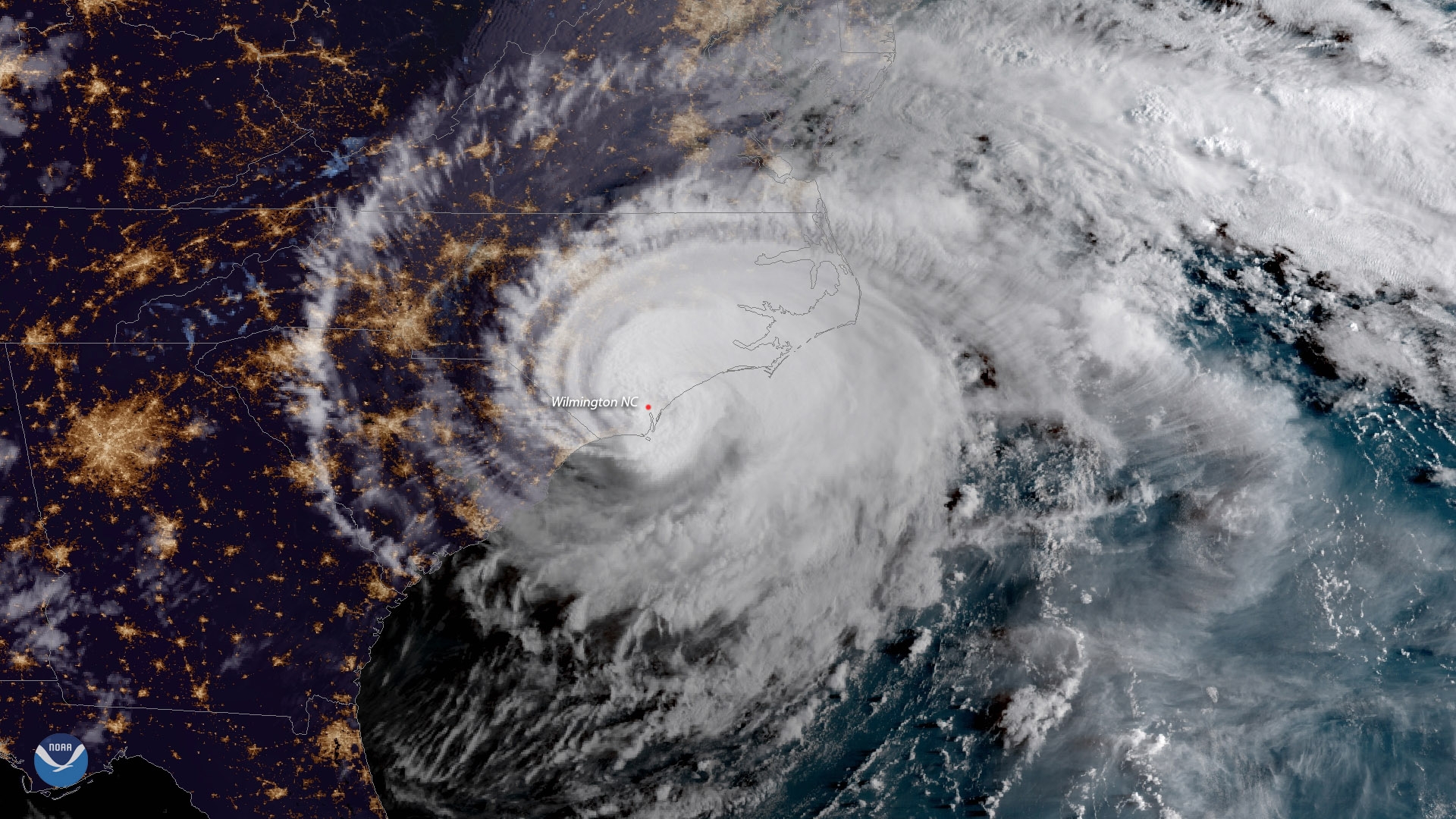Are Hurricanes and Tropical Cyclones Moving at a More Leisurely Pace?
That research by James Kossin of NOAA’s National Centers for Environmental Information raises the possibility that human-caused climate change might be contributing to slower tropical cyclone speeds.

However, new research published in Nature by John R. Lanzante of NOAA’s Geophysical Fluid Dynamics Laboratory casts some doubt that tropical cyclones are slowing and that there’s a link to climate change.
Looking at global data on tropical cyclones from 1949 to 2016, Lanzante concludes that decreases in the speed of tropical cyclones observed by Kossin might not be happening at all, and could more likely be due to the significant change that satellite data made to tracking tropical cyclones – as well as natural variations in the climate.
Understanding the speed of tropical cyclones is essential because those storms that lumber slowly over land typically dump larger amounts of rain and can trigger catastrophic flooding that can cause greater loss of life and property damage. Hurricane Harvey in 2017 and Hurricane Florence in 2018 serve as two recent examples.

[Time series of global annual-mean tropical-cyclone translation speed with inter-basin frequency variability removed]
What’s the impact of satellite data?
“The fact that data show abrupt changes in speed, and most of the long-term change in tropical cyclone speed happens in the 1950s and 1960s makes it very unlikely that climate change is a dominant cause,” said Lanzante. “If climate change was a dominant driver, we would expect to see the bulk of the decrease in speed in recent decades when climate change has accelerated.”
Kossin’s response to Lanzante’s research in the same issue of Nature notes that Lanzante does raise fair questions. However, he disagrees with Lanzante’s conclusion that abrupt changes over time in tropical cyclone speeds are primarily due to satellite data.

[Hurricane Florence makes landfall near Wrightsville Beach, N.C. at 7:15 a.m. EDT, September 14, 2018]
“When something is affected by both human-caused changes and natural variability, there is less expectation of a steady trend,” Kossin said. “The causes for the trend need to be more formally teased out to determine what factors are dominant.”
Kossin is also skeptical of Lanzante’s choice not to focus on data taken over land in his research, noting that “the slowdown over land is much more relevant to impacts on humans, and the data over land are also less susceptible to the data-collection changes such as the introduction of satellites.”
On two things, both scientists agree: More research is needed to more deeply understand the behavior of hurricanes and tropical cyclones. And constructive, science-based debate can move the science community closer to the truth. To read the scientists' papers, plus an additional article on hurricane speed, visit this page at Nature.
Edited for WeatherNation by Meteorologist Mace Michaels